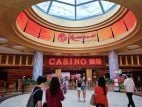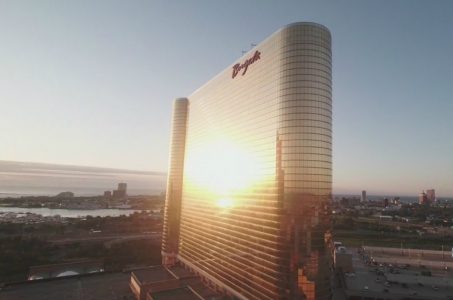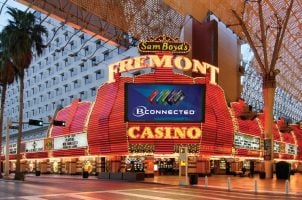Genting Singapore Faces Challenges in Home Market Amid VIP Volatility, Say Analysts
Posted on: November 12, 2019, 03:33h.
Last updated on: November 12, 2019, 04:09h.
Genting Singapore, the Resorts World Sentosa operator, is likely to face challenges in the city-state due to softness among mass market gamblers and unpredictability with VIP players, according to Malaysian brokerage house Affin Hwang Capital.

Resorts World Sentosa is one of just two Singapore gaming properties, with Marina Bay Sands (MBS) being the other. MBS is operated by Marina Bay Sands Pte. Ltd., a unit of Las Vegas Sands (LVS).
Genting Singapore reported a relatively weak set of numbers for the nine months of financial year 2019, as its core profit after tax and minority interests of $388.67 million (a 14 percent year-over-year decline) was below our expectations, but within consensus forecast, as it constituted 66% and 75% of the respective forecasts,” according to Affin Hwang.
That $388.67 million is far short of the $435 million in earnings before interest, taxes, depreciation and amortization (EBITDA) Sands generated at MBS during the third quarter. Over that period, MBS accounted for nearly a third of the parent company’s $1.28 billion in EBITDA.
“We believe that the outlook for the Singapore gaming market is likely to remain challenging, due to a slower local mass market and uncertainty in the VIP segment,” said Affin Hwang.
A Tale Of Two Operators
While Genting may be dealing with a Singapore slump, rival LVS is forging ahead with multi-billion dollar expansion plans that include a fourth MBS tower. That move will expand suite capacity by 40 percent and feature a high-end entertainment arena, amenities that are expected to provide the foundation for more growth at the venue.
Additionally, Sands doesn’t seem to be experiencing the lethargy in the Singapore mass market that Genting is coping with. On the company’s recent third-quarter earnings conference call, LVS CEO and Chairman Sheldon Adelson said “rolling volumes were strong and/or above the level of the prior year. Mass win per day remains solid.”
The Affin Hwang analysts believe that in the July through September period, Genting Singapore was pinched by a higher entry fee charged to locals and that the company’s second-quarter win rate of 3.7 percent proved to be an outlier.
“Gaming revenue was also negatively impacted by the win rate normalizing to 2.6%,” said the investment bank. “We believe that the high win rate in 2Q at 3.7% had helped mask the weakness of GenS’ profitability.”
LVS executives didn’t mention the higher entry fee on the earnings call. Rather, COO Rob Goldstein said people are going to be surprised by how much upside the Singapore market offers Sands.
Gloomy Economic Outlook
Genting could be vulnerable to a further slowdown in the local mass market because Singapore’s economy is sluggish. The city-state’s third-quarter GDP grew by a scant 0.1 percent. But that missed estimates calling for an uptick of 0.2 percent, and Singapore is currently dogged by fears that a recession is imminent.
“With the challenging economic outlook both locally and regionally, the overall gaming volume is likely to remain weak for both the mass and VIP segments, in our view,” said the Affin Hwang analysts.
Related News Articles
Most Popular
Mirage Las Vegas Demolition to Start Next Week, Atrium a Goner
Where All the Mirage Relics Will Go
Most Commented
-
Bally’s Facing Five Months of Daily Demolition for Chicago Casino
— June 18, 2024 — 12 Comments















No comments yet